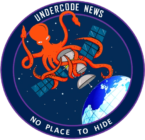In the world of personal computing, certain moments and innovations stand out for their sheer impact. Among them are the stories of the Altair 8800, the early days of Microsoft, and the role BASIC played in transforming the tech industry. The following article delves into these pivotal moments that helped push the personal computer revolution forward, exploring how Bill Gates, Paul Allen, and others helped change the future of computing, from early coding to the evolution of the industry.
A Journey from High School to the Personal Computing Revolution
In the mid-1970s, a young Bill Gates and I found ourselves immersed in the world of computers. While Gates was setting the stage for what would become Microsoft, I was on my own journey, already deep into engineering and computer technology. Despite my initial ambitions in nuclear engineering, my life took a different direction, as I discovered the world of personal computing. This era marked a shift, not just in my career but in the way many of us interacted with technology, especially with the of the Altair 8800 and the BASIC programming language.
From High School Struggles to Building My Own Altair 8800
My journey into computing started in high school, where I struggled with traditional learning methods. The turning point came when I first interacted with a teletype machine, which responded with “READY” — an interactive experience that completely changed my relationship with technology. This was the early 1970s, and the Altair 8800 was just around the corner. It was a revolutionary device, offering the promise of a personal computer that could be used in a way never before seen.
The Altair 8800, introduced in 1974, was the first commercially successful personal computer. It offered an opportunity for hobbyists to own and operate their own computing machines, though it lacked software. Bill Gates and Paul Allen recognized this gap and saw an opportunity to write a programming language that could run on the Altair. Their solution was to create the BASIC interpreter, a key development that would make the personal computer accessible to a much wider audience.
The Role of BASIC and Altair 8800 in Shaping Computing
In order to run applications on the Altair, the machine needed a way to interact with users beyond toggling switches. Enter BASIC — a high-level programming language that made computers more accessible. Before BASIC, users had to program in assembly language, which was tedious and error-prone. By offering an easier way to write code, Gates and Allen revolutionized the personal computing world, creating the foundation for future software and hardware advancements.
I eventually built my own Altair 8800 after years of saving and scavenging parts. Assembling it was no easy task — it required hours of hand-soldering and painstakingly entering code by toggling switches. But once I had a working system, the rewards were immense. This experience was transformative, cementing my path in the tech industry and teaching me about the challenges and joys of building computers.
What Undercode Says:
The early days of personal computing were marked by an energy of experimentation and ingenuity. Gates and Allen’s work on BASIC for the Altair 8800 was a monumental achievement that shaped the entire trajectory of the personal computer industry. Their ability to write an emulator for the Intel 8080 processor and create an interactive programming environment for the Altair was nothing short of groundbreaking.
While BASIC has since fallen out of favor due to its limitations in scalability and maintenance, its role as a “gateway drug” for future programmers cannot be overstated. For many, learning BASIC was their first entry point into the world of programming, and it opened the doors to more complex languages and systems that would dominate in the decades that followed.
The Altair 8800 and the accompanying BASIC interpreter allowed people like me to dive into computing in ways that were previously impossible. As a result, a new generation of engineers and developers found themselves inspired by what had once seemed like an exclusive and complicated field. The simplicity of BASIC made it possible for many to learn programming, and it planted the seeds for future innovations that would shape industries and lives.
Reflecting on my own academic journey,
Even though BASIC may seem rudimentary by today’s standards, it was a revolutionary tool that made personal computers usable for the masses. And for those of us who were lucky enough to experience this early wave, it remains a fond memory — a reminder of how far we’ve come.
Fact Checker Results:
- The Altair 8800 was indeed the first commercially successful personal computer, introduced in 1974.
- BASIC was the programming language that helped propel the personal computing revolution by making machines more interactive and accessible.
- Bill Gates and Paul Allen were instrumental in developing the BASIC interpreter for the Altair 8800, a key milestone in the history of Microsoft.
References:
Reported By: https://www.zdnet.com/article/how-bill-gates-the-altair-8800-and-basic-propelled-me-into-the-pc-revolution/
Extra Source Hub:
https://www.quora.com
Wikipedia
Undercode AI
Image Source:
Pexels
Undercode AI DI v2

